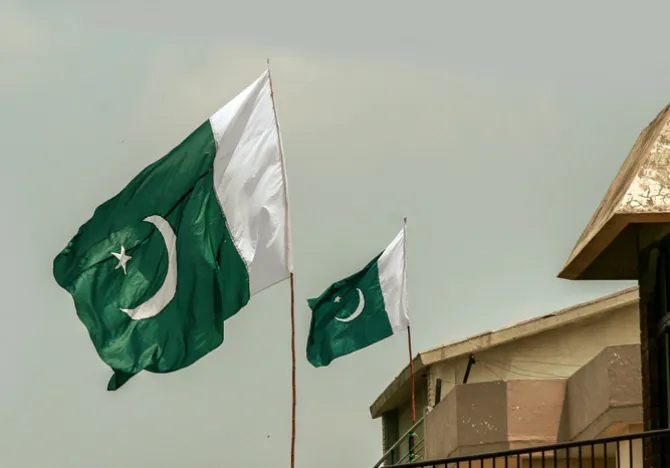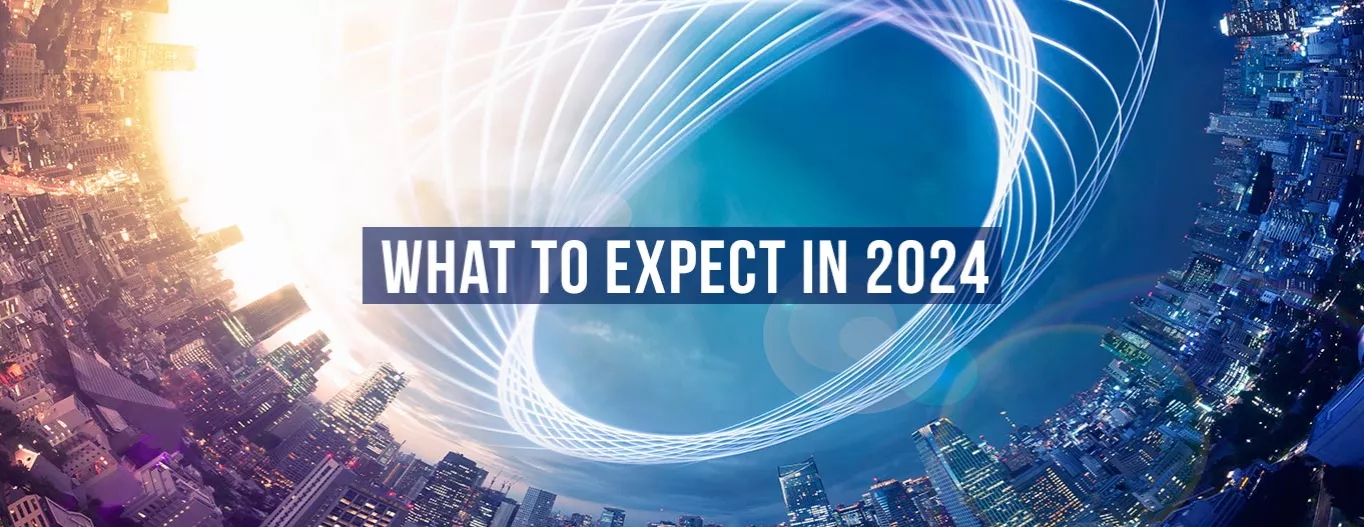
This essay is part of the “What to expect in 2024” series.
Introduction
A perpetual lament in Pakistan since its creation in 1947 is that the country stands at a crossroads. Every new year is labelled as a make-or-break year. 2024 will be no different, except for the fact that the “break” part is now a more dominant theme than the “make” part. This is largely because Pakistan in the throes of what is being billed as a polycrisis and because the scale of each of the crises—political, economic, security, institutional—confronting Pakistan has acquired existential dimensions. Going into 2024, there doesn’t appear to be a clear roadmap on how to navigate out of the poly-crisis. This means that like in the past, in 2024 Pakistan’s leaders will look for quick-fix solutions to structural problems. In other words, they will pick the easy road which will only perpetuate the crossroads syndrome of Pakistan.
Uncertainty over elections and after elections
General Elections are to be held on 8 February 2024, but there is lingering uncertainty if the elections will be held on the appointed date, or will be postponed. The normal excitement and enthusiasm that accompanies a general election is missing. Perhaps this is because the man who is arguably the most popular political leader—Imran Khan—is being kept out of the electoral fray, and is likely to stay in prison for the foreseeable future. There is a consensus that former Prime Minister Nawaz Sharif enjoys the blessings of the military and is likely to come out on top in the elections. But his party is expected to fall short of a majority and will have to form a coalition government, not very different from the 13-party coalition that replaced Imran Khan in April 2022. The military will pull the strings of this government through the coalition partners, all of whom will be beholden to the Army. The only fly in the ointment to this carefully prepared political plan will be if Nawaz Sharif actually manages to secure a majority on his own, or if Imran Khan’s party upsets the political apple cart of the military establishment and its political allies.
With the creation of the Special Investment Facilitation Council (SIFC), the military has inserted itself into virtually every domain of policy-making and implementation.
The elections are unlikely to usher in political stability. Civil-military tensions are likely to persist. With the creation of the Special Investment Facilitation Council (SIFC), the military has inserted itself into virtually every domain of policy-making and implementation. This has constricted the political and policy space of the civilian government. If the SIFC functions as it is supposed to, it will reduce the elected government into a rubber stamp; if the SIFC is made redundant, it will poison civil-military relations. Nawaz Sharif, in particular, has always been allergic to the Army’s dominance and will resist the military from interfering in economic matters and undermining his foreign policy initiatives. If civil-military relations go south, the coalition partners will get their cue to start demanding their own pound of flesh, making the government wobbly. The popular mandate of the government will always be questioned given that Imran Khan and his Pakistan Tehrik-e-Insaf (PTI) were not given a level playing field. The PTI will naturally do everything to make life difficult for the government.
Economic travails
Notwithstanding the slight uptick in economic numbers in recent weeks, the economy will remain in crisis mode in 2024. The GDP growth is expected to be just around 2 percent even though the population is growing by an estimated 2.55 percent. Inflation will remain over 20 percent and the rupee is expected to fall to 350 to a dollar by the end of 2024. The Balance of Payments situation will remain under stress given Pakistan's onerous external payments obligations. Pakistan’s debt problem will only become more unmanageable given the speed at which loans are being taken to run the government. The fiscal situation will remain fraught because the revenue of the federal government will not be enough to even service the debt. Pakistan will try for some debt reprofiling, relief, and rescheduling. But unless there is some major geopolitical development that allows Pakistan to extract strategic rents from global powers, there won’t be any major bailout packages coming its way. Pakistan will make frenetic efforts to off-load some state-owned enterprises to reduce the losses that the exchequer is bearing and to monetise these units, but this is at best a band-aid solution.
The fiscal situation will remain fraught because the revenue of the federal government will not be enough to even service the debt.
Pakistan needs deep structural reforms for the economy to become sustainable and viable. But no one is ready to pay the political and administrative cost that such reforms entail. The new government will have to negotiate Pakistan's 24th International Monetary Fund (IMF) programme. The IMF will force some harsh but necessary conditions which will add to the already high economic distress levels. But perish the idea of any full spectrum reforms. At best, there will be half-baked reforms, the usual tinkering around the edges that will try to balance the IMF demands with political compulsions. Some investments from Saudi Arabia, the United Arab Emirates (UAE) and Qatar are on the anvil, but there will remain a big question mark on whether they fructify, and in what shape, form and on what terms. In any case, they are unlikely to be a panacea for Pakistan's economic problems. A lot will also depend on who marshals the economy in the next government. There is serious concern that if the economic policy is going to be framed either directly or from behind the scenes by Ishaq Dar—Nawaz Sharif’s relative and a man who prides himself in his voodoo economics—then the economy could easily go into a tailspin. Also, if there is any exogenous or endogenous shock, it could lead to the economy going belly up.
Jihadist boomerang
The terrorist threat will continue to metastasise in 2024. With Pakistan's jihadist strategic assets having turned toxic, the portents of the scale and severity of terror attacks in 2024 are quite terrifying. Pakistan will confront very difficult choices on how to manage the new wave of jihadist attacks which are starting to extract a very heavy price. The Afghan Taliban will try to avoid a direct confrontation with Pakistan but are unlikely to deliver on Pakistan's demands to shut down the Tehrik-e-Taliban Pakistan (TTP) and its front organisations. Pakistan is itching to take the battle into Afghanistan with crossborder strikes against TTP. But this will force the hand of the Taliban to retaliate. Whichever way you cut it, Pakistan will be caught in a war of attrition with jihadists, a war that will impose serious economic costs—investors confidence will be shattered, the exchequer will bleed, and dreams of becoming a regional connectivity hub will be shattered.
Thaw with India?
There is an expectation that with elections in both India and Pakistan being concluded by the middle of 2024, there could be some renewed effort to restart engagement with India. Pakistan will, of course, have to climb down from its stand that there can be no engagement until India reverses the constitutional reforms in the Union Territory of Jammu and Kashmir (J&K). But the recent Supreme Court of India ruling directing the government to restore the statehood of J&K as soon as possible could be a face-saver of sorts to Pakistan, should it want to take it. Pakistan will have to restore full diplomatic relations for things to move forward. Both countries have their own reasons to re-engage: Pakistan cannot afford an active border with India at a time when it is getting enmeshed in a war of attrition on its Western front; India would like to keep its Western border quiet since it is confronting a belligerent China on its Northern and Eastern border. If re-engagement starts, the best that can be hoped for is that trade could re-open between the two countries. India will remove the barriers and prohibitive tariffs it imposed on Pakistani products, and Pakistan will have to grant India Most Favoured Nation (MFN) status. A political track on both the front and back channels could also open up. But if Pakistan insists on according centrality to the J&K issue, then the diplomatic logjam will continue.
China will continue to deepen its strategic and political relationship with Pakistan, but the China-Pakistan Economic Corridor will continue to be dogged by the insolvency of Pakistan which has undermined the viability and sustainability of Chinese investments.
Conclusion
Going into 2024, there isn’t a great deal of optimism in Pakistan. It promises to be a rather tough year, or yet another make-or-break year on multiple fronts. Pakistan will try to bring some balance in its ties with China and United States (US) but this won’t be easy if Sino-US ties remain strained. China will continue to deepen its strategic and political relationship with Pakistan, but the China-Pakistan Economic Corridor will continue to be dogged by the insolvency of Pakistan which has undermined the viability and sustainability of Chinese investments. There will be engagement with the US but it will be security-centric. In the Middle East, Pakistan hopes that some financial slack will be cut by the Arabs, but any hopes of investments of tens of billions of dollars are misplaced. Simply put, there isn’t going to be much to celebrate in 2024.
Sushant Sareen is Senior Fellow at Observer Research Foundation
The views expressed above belong to the author(s). ORF research and analyses now available on Telegram! Click here to access our curated content — blogs, longforms and interviews.




 PREV
PREV



